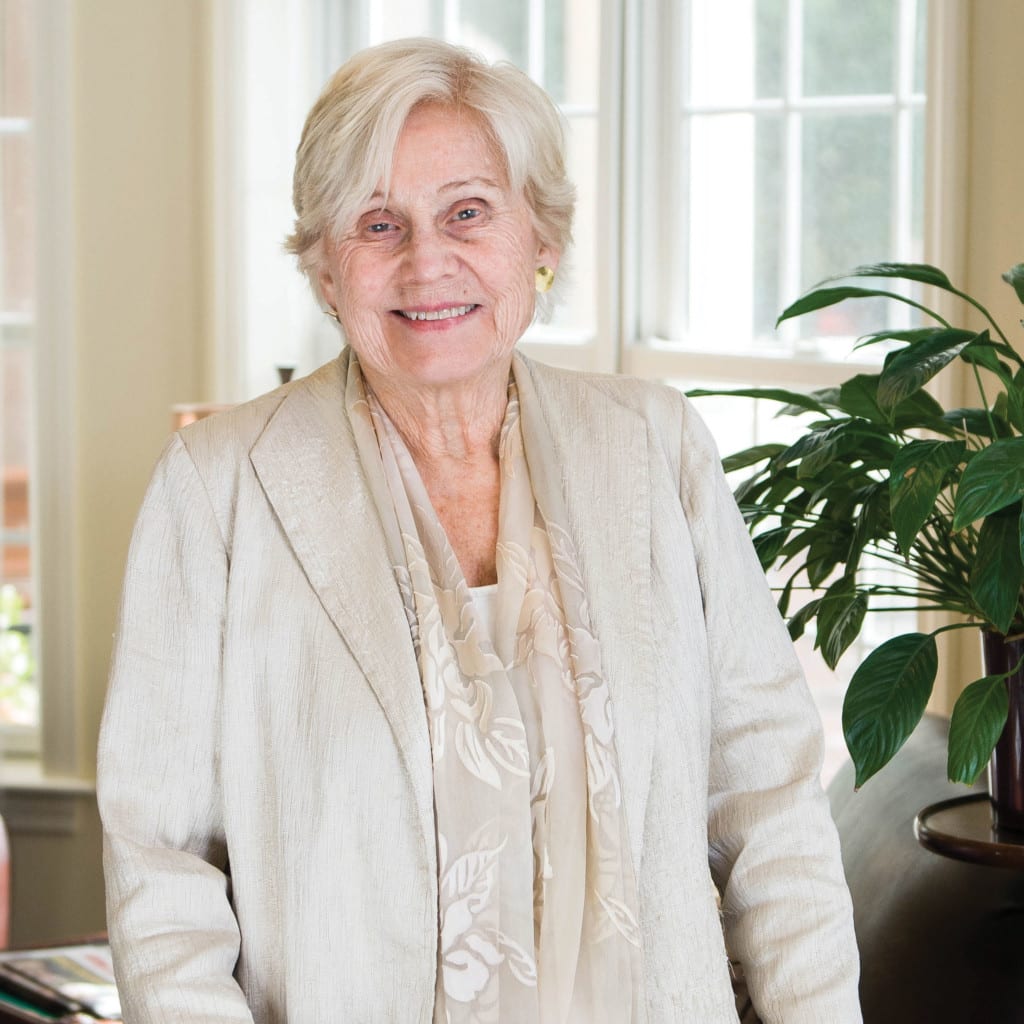Class of ’52 graduate Katharine Cole Esty’s new book is all about aging well and finding happiness in old age. Here she shares five of her top tips.
For Katharine Esty NSFG ’52, the moment of recognition came on a hike with her grandchildren not long after her 80th birthday. “It was a little mountain, Mt. Tom-style, that I had climbed many times,” she recalls. “But I just couldn’t make it to the top.” The eighties, she suddenly understood, were going to be different from everything that had come before.
A social psychologist, author, retired business executive, and former Williston trustee who lives outside of Boston, Esty decided to read up on what she could expect. Her discoveries were dismaying. Not the answers, but the very lack of them. “I couldn’t find a single self-help book written for people in their eighties,” a cohort, she notes, that is growing faster than any other old age group. By nature and training a problem-solver (she is a co-founder of Ibis Consulting, an advisor on issues of diversity and organizational effectiveness to Fortune 500 companies and leading educational institutions), Esty decided to conduct her own research. The result is Eightysomethings: A Practical Guide to Letting Go, Aging Well, and Finding Unexpected Happiness (Skyhorse Press, 2019).
Drawn from more than 120 interviews Esty conducted with octogenarians around the country about their attitudes, activities, relationships, hopes, and concerns, along with dozens of their adult children, the book explores the “strange and uncharted territory of old age.” Writing with compassion and candor, Esty looks at issues of physical and mental health, offers tips on practical matters such as finances, living arrangements, and end-of-life planning, and examines the graceful negotiation of what she calls “upside-down parenting,” when adult children take on increased roles as caregivers.
Her most valuable insight: Cultural stereotypes aside, for those lucky enough to reach them, the eighties are a rich and rewarding decade. “People are happier in their eighties than they were in their seventies and in their seventies than they were in their sixties,” she says. “This is not just my people, who come from all walks of life. Scientists who study longevity are finding that despite health issues and other difficulties, the losses that come with aging, people are happy.” Here, Esty shares five key practices that support graceful aging and late-life happiness. For more on the topic, visit her at katharineesty.com.
5 Ideas for Aging Well
- Stay connected to others. We are social and emotional beings. In America we have this sense of individualism, the kind of Lone Ranger thing of not needing anybody, but isolation isn’t good. As we age we need to live where we can connect to people easily every day, so staying alone in your house away from the village, as it were, may no longer make sense. It’s important to be connected where you live.
- Communicate between and across the generations. Family remains central in almost everybody’s lives, and regular communication about the difficult topics of aging is incredibly important: what kind of end-of-life care one wants, funeral wishes, estate planning, the tricky transition from being the parent to being the one who needs help. We must talk openly about these things.
- Ignore negative stereotypes about old age. They don’t fit any longer. We were brought up to think that the elderly lose brains cells every day, that old people don’t learn well. New science shows that the brain continues to develop. We used to think you grew up to be an adult and then it was all down hill from 40 to 90. As it turns out, there’s this neuroplasticity, this capability of the brain to heal itself and to grow. We are not doomed. There is a lot of good news. Some research shows that if you maintain a positive attitude about aging, you’re going to live 7.5 years longer than people who don’t.
- Find a purpose. The people who are happiest are those who are doing something for others. Whether they’re supporting a cause like climate change or volunteering in a hospital or taking care of a grandchild or a great-grandchild even. Contributing in some way. There’s a need to do something for others; even as you get very old and don’t have the same physical abilities, you can find something to support, some way to contribute.
- Embrace the freedom afforded by old age. There is tremendous opportunity for happiness now that you are no longer striving for personal and professional achievement the way you do earlier in life. There’s a passage in King Lear that I like where he says to his daughter, come with me, we’ll sing and laugh and tell tales. None of those things have any great purpose in the sense of achievement, but they’re enjoyable. Being older is the time to just do what you really enjoy. There’s so much freedom not only to do what you want to do, but to become the person that you were always meant to be but never had time to become.

